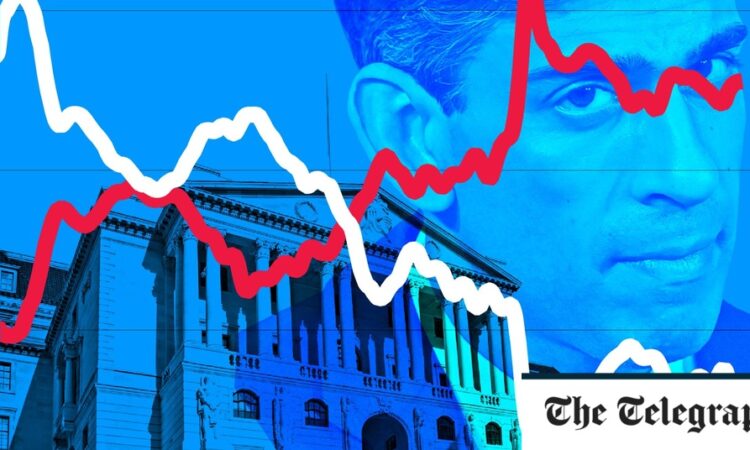
He also faces the additional challenge of his party having lost its reputation for economic competence after the scandalous mini-Budget, with voters more inclined to say Labour would be the best at handling the economy.
“Typically in an election campaign a recovering economy, falling inflation and decreasing interest rates tend to help the Government and we’re expecting all those things to occur over election time next year. The question is: is it going to help the Conservatives sufficiently to enable them to beat Labour and with a gap of 20 points in the polls?” says Shaw.
Borrowing costs are particularly important in blue wall seats, where the concentration of mortgage holders tends to be highest.
These are areas, typically in the south of England, with educated voters who often commute into London for professional jobs and where the Conservatives have suffered painful by-election defeats.
Many borrowers are still anxiously anticipating the prospect of refixing their mortgages at much higher rates. Falling market expectations of interest rates will limit the blow slightly, but for those coming off deals of 1pc or 2pc it will still be a bitter pill to swallow.
Shaw says that while rate cuts are unlikely to provide a massive boost to the economy before the election, “nonetheless it’s a help”.
“You still get the positive psychological effect of the Bank Rate coming down on spending,” Shaw says.
Another factor in Sunak’s favour will be that wages are growing faster than inflation and are expected to do so for some time, meaning households are regaining some spending power.
But whether Sunak could get a much-needed boost from falling borrowing costs will crucially hinge on why they are going down, says Pickering.
“If we have to cut interest rates because we end up in recession over winter, then no. If we cut interest rates because the supply side of the economy seems to be improving and inflation is falling faster than expected and therefore the economy is a bit stronger, then yes,” he says.
Saunders expects they will come down for the wrong reasons, meaning any help for Sunak will be limited.
“It’ll be because the economy is flat. It’s touch and go whether it goes into recession. Unemployment is likely to be rising. We’ve already seen recent figures showing mortgage arrears are rising. They’ll probably rise further. Insolvencies will be rising. In other words, it’s going to be a pretty grim economic outlook,” he says.
Yet any little sign of things improving will be welcome for Sunak as he fights to restore the party’s image as economically competent. Going into an election at a time when real incomes are rising and mortgages are gradually becoming cheaper can only be helpful and could help him narrow the gap.
But it may have come too late for a Tory leader short of good news now.
“I think the most likely outcome, although it’s certainly not guaranteed, is that Labour wins and they inherit an economy with falling interest rates, low inflation, a falling deficit and a recovering real GDP growth rate,” Pickering says.






